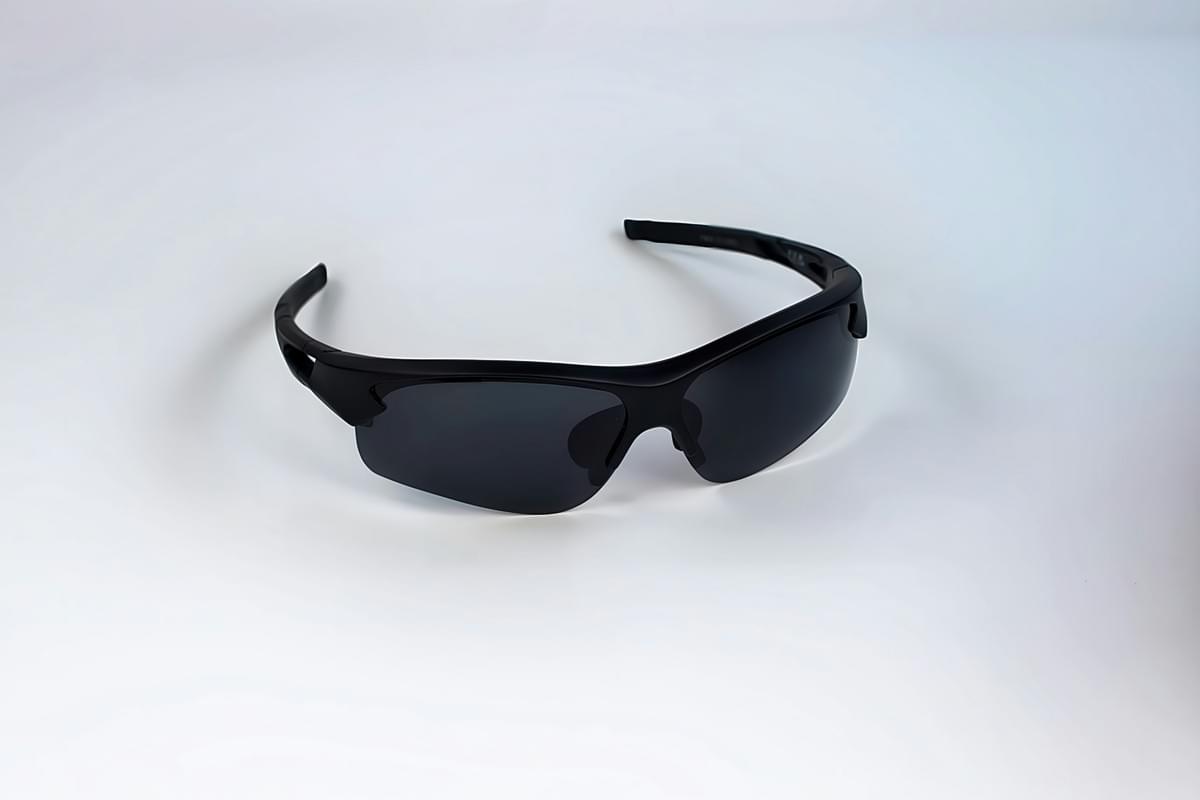Introduction
In recent years, polarized sunglasses have surged in popularity, becoming a staple accessory not just for fashion enthusiasts but also for athletes across various sports. The allure of these lenses lies in their ability to enhance vision clarity and reduce eye strain, making them an essential tool for anyone looking to improve their performance. As we delve into the world of polarized vs non-polarized lenses, it becomes clear why so many athletes are opting for the former.
The Growing Popularity of Polarized Lenses
The growing popularity of polarized lenses can be attributed to their numerous benefits that cater specifically to active lifestyles. Athletes often face challenging conditions that require optimal visual performance; thus, the appeal of sunglasses designed to reduce glare and enhance comfort is undeniable. With more people recognizing the advantages of polarized sunglasses, it's no wonder they are becoming a go-to choice for outdoor activities.
Understanding Polarized vs Non-Polarized Lenses
When comparing polarized vs non-polarized lenses, it’s crucial to understand how each functions and what they offer. Polarized lenses are engineered with a special filter that blocks intense reflected light—think gleaming water or shiny pavement—while non-polarized options do not provide this feature. This fundamental difference makes polarized sunglasses particularly effective at reducing glare for clearer vision, ultimately enhancing overall visual comfort during sports and other outdoor pursuits.
Why Athletes Choose Polarized Sunglasses
Athletes choose polarized sunglasses for several compelling reasons that directly impact their performance on the field or court. These specialized lenses not only reduce glare but also enhance eye comfort and reduce fatigue during long hours under bright conditions—benefits that are essential for maintaining focus and precision in any sport. Additionally, with features like improved contrast and visual sharpness alongside UV protection for long-term eye health, it’s easy to see why many athletes consider these shades indispensable gear—leading us to ponder: Are polarized sunglasses good for all sports?
1. Reduces Glare for Clearer Vision

Whether you're hitting the waves, biking down a sunlit trail, or playing tennis on a bright court, glare can distort your vision and hinder performance. This is where the debate of polarized vs non-polarized lenses comes into play; polarized lenses are specifically designed to combat this issue by filtering out horizontal light waves that create glare.
How Glare Affects Performance
Glare isn’t just an annoyance; it can significantly impact performance in sports and outdoor activities. For instance, when athletes struggle to see due to blinding reflections off surfaces like water or pavement, their reaction times may slow down, leading to missed opportunities and potential injuries. In essence, reducing glare is crucial for maintaining focus and achieving peak performance—something polarized sunglasses excel at.
Polarized Lenses in Action
Imagine you're out on the water with the sun glistening off the waves—without polarized lenses, you might find yourself squinting and straining your eyes just to see clearly. Polarized sunglasses filter out that disruptive horizontal light while allowing vertical light through, resulting in crisp visuals and reduced eye strain. Athletes often report feeling more relaxed during their activities when wearing these specialized lenses because they’re not constantly battling glare.
Specific Sports That Benefit Most
While many sports can benefit from reduced glare, some stand out more than others when it comes to using polarized sunglasses effectively. Water sports like fishing or sailing are prime examples where glare reduction is essential for visibility beneath the surface or navigating reflective waters. Additionally, skiing and snowboarding enthusiasts will find that polarized lenses enhance contrast against snow-covered landscapes—making them a must-have accessory for those who love hitting the slopes.
2. Enhances Eye Comfort and Reduces Fatigue

When it comes to sports, comfort can play a pivotal role in performance, and this is where polarized lenses shine. Unlike their non-polarized counterparts, polarized sunglasses are designed to filter out glare from surfaces like water or pavement, which can lead to eye strain and fatigue during prolonged activities. By reducing glare for clearer vision, athletes can maintain focus longer without the discomfort that often accompanies intense sunlight exposure.
The Science Behind Eye Strain
Eye strain occurs when the eyes become fatigued from overuse or exposure to bright light, leading to discomfort and reduced visual acuity. This is particularly problematic for athletes who need every ounce of clarity and focus during competitions or training sessions. Polarized vs non-polarized lenses highlight this difference: while non-polarized lenses may allow harmful glare to penetrate your vision, polarized lenses actively reduce this glare, resulting in less eye strain and a more comfortable experience.
Real-world Examples of Comfort in Action
Consider a professional fisherman spending hours on the water; the sun's reflection off the surface can be blinding without proper eyewear. Athletes who switch to polarized sunglasses often report significant improvements in comfort levels during long hours outdoors—whether they’re cycling under the sun or playing beach volleyball on bright sand. These real-world examples demonstrate how polarized sunglasses enhance eye comfort and reduce fatigue across various sports activities.
Expert Opinions on Eye Health
Health professionals consistently recommend polarized sunglasses as essential gear for anyone engaging in outdoor sports due to their ability to provide UV protection for long-term eye health while also enhancing visual performance. These experts emphasize that reducing glare not only improves contrast and visual sharpness but also plays a crucial role in preventing future eye issues related to strain and fatigue. So when asking yourself if polarized lenses help with eye strain, remember that many specialists advocate for them as an effective solution.
3. Improves Contrast and Visual Sharpness

When it comes to sports, seeing the world in high definition can make all the difference. Polarized lenses improve contrast and visual sharpness, allowing athletes to distinguish between subtle variations in terrain, water conditions, or even opponents' movements. This enhanced clarity can be a game-changer, especially when split-second decisions are crucial for performance.
Benefits for Various Sports
Different sports have unique visual demands that polarized sunglasses address perfectly. For instance, fishermen benefit from reduced glare on water surfaces, helping them spot fish more easily. Similarly, cyclists experience improved road visibility and can better navigate obstacles thanks to the enhanced contrast provided by polarized lenses.
Testimonials from Athletes
Athletes across various disciplines rave about their experiences with polarized sunglasses. A professional surfer mentioned how switching from non-polarized to polarized lenses transformed his ability to read waves accurately and catch more swells. Another athlete shared that wearing polarized sunglasses during marathons not only improved her focus but also made her feel less fatigued—an example of how these lenses truly enhance eye comfort and reduce fatigue.
The Role of Contrast in Performance
Contrast plays a pivotal role in athletic performance; it allows athletes to quickly assess their environment and make informed decisions on the fly. With polarized lenses improving contrast significantly compared to non-polarized options, athletes can react faster and more accurately during competitions or training sessions. This advantage is not just beneficial; it’s essential for anyone serious about their sport—making one wonder: Are polarized sunglasses good for all sports?
4. Provides UV Protection for Long-Term Eye Health
The sun emits harmful ultraviolet rays that can lead to serious conditions like cataracts and macular degeneration over time. This is particularly concerning for athletes who spend countless hours outdoors, making it crucial to wear sunglasses that provide adequate protection against these harmful rays.
The Importance of UV Protection
Understanding the importance of UV protection is essential for anyone who values their vision, especially athletes engaged in outdoor sports. Prolonged exposure to UV rays can cause immediate discomfort and long-term damage to the eyes, such as photokeratitis and even skin cancer around the eyelids. Wearing sunglasses with proper UV filtration helps mitigate these risks, ensuring that your eyes remain healthy while you enjoy your favorite activities.
How Polarized Sunglasses Help
Polarized sunglasses offer more than just glare reduction; they also come equipped with effective UV protection features that safeguard your eyes from harmful rays. While polarized vs non-polarized lenses may have different functionalities, both types can offer varying levels of UV protection depending on their design and quality. However, polarized lenses are often favored by athletes because they not only reduce glare for clearer vision but also enhance eye comfort and reduce fatigue during long hours of play.
Recommendations from Aisen Optical
At Aisen Optical, we recommend looking for polarized sunglasses that specifically mention 100% UVA and UVB protection on the label when shopping for eyewear designed to protect your eyes from long-term damage. It's essential to choose high-quality lenses as they will effectively filter out harmful rays while providing clear vision—ideal for those wondering if polarized sunglasses are good for all sports or if they help with eye strain during intense activities. Additionally, if you're concerned about driving safety, rest assured that many polarized options are designed specifically to minimize distortion while enhancing contrast—making them perfect companions on the road too!
[Image description=athlete wearing polarized sunglasses outdoors, bright sunlight shining down, vibrant colors contrasting against blue sky], Image name=polarized_sunglasses_athlete_outdoors, Alt tag=Comparison of polarized vs non polarized lenses in athletic performance
Conclusion
In the world of eyewear, polarized sunglasses have carved out a niche that’s hard to ignore. With their ability to reduce glare for clearer vision, enhance eye comfort and reduce fatigue, improve contrast and visual sharpness, and provide UV protection for long-term eye health, it’s no wonder athletes are flocking to them. However, the question remains: are polarized sunglasses good for all sports?
Are Polarized Sunglasses Good for All Sports?
While polarized sunglasses offer numerous benefits, they aren't universally perfect for every sport. For activities like fishing or skiing where glare reduction is paramount, polarized lenses shine bright—literally! However, in sports like mountain biking or certain racing scenarios where you may need to see LCD screens clearly (think GPS devices), non-polarized lenses can be more beneficial as they don't distort these displays.
Do Polarized Lenses Help with Eye Strain?
Absolutely! One of the standout features of polarized lenses is their ability to enhance eye comfort and reduce fatigue during prolonged exposure to bright conditions. Athletes often report that after a long day in the sun with polarized sunglasses on, their eyes feel less strained compared to days spent wearing non-polarized options—making them a smart choice for anyone looking to protect their vision.
Can You Wear Polarized Sunglasses While Driving?
Driving with polarized sunglasses can be a bit of a double-edged sword. On one hand, they effectively reduce glare from surfaces like wet roads or hoods of cars—enhancing your overall driving experience and improving contrast and visual sharpness. On the other hand, some drivers find that these lenses can make it tricky to see LCD screens on dashboards clearly; hence it’s wise to consider your specific vehicle's features before making the switch from non-polarized options.
